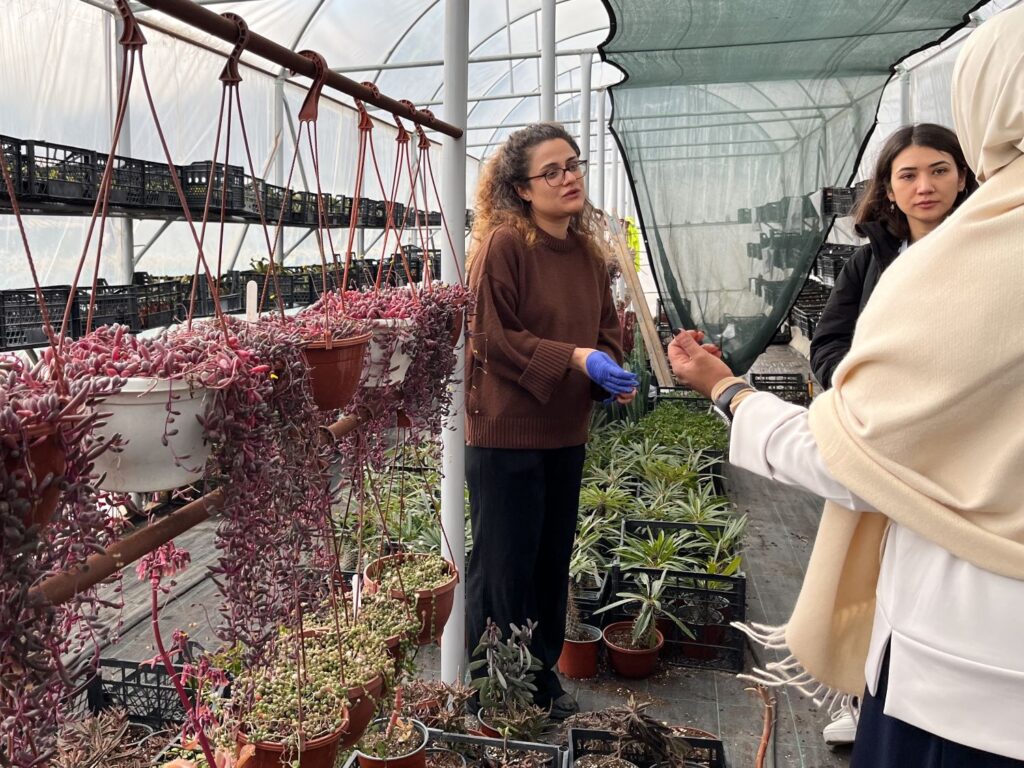Urban resilience begins here: How women in Izmir are growing more than food
Tucked into the hills of Izmir’s Kadifekale district lies a quiet revolution in urban resilience. At first glance, it may just look like a patchwork of 15-square-meter garden plots, each one carefully tended by local women. But spend just a little time here, and it becomes clear that these are not just vegetable beds; they are seedbeds for community, care, and environmental renewal.
As Türkiye braces for another summer of heatwaves and unpredictable storms, spaces like the Kadifekale community garden offer something increasingly rare in cities: Green space that is not only public, but participatory. Now in its third year, this garden was founded to promote neighborhood and women’s solidarity, particularly among residents of underserved neighborhoods like Imariye and Pazaryeri. It continues to flourish thanks to the women who grow food here, and the team behind the Kadifekale Women’s Solidarity Center.
“We created this project to promote neighborhood and women’s solidarity,” tells us in an interview Deniz Evcimen, who helps manage the garden. “Each woman participates in her own production process. They take part throughout the year, and we aim to create an opportunity for women to access healthy food and also to socialize.”

The idea is simple: Each woman receives her own plot, tools, and guidance. What she grows is up to her, whether vegetables, herbs, or native plants. This in turn gives them a chance to reconnect with nature, with food systems, and most importantly, with each other.

More than a garden
In a city where many families face economic precarity and social isolation, the community garden serves as a rare space of safety and dignity. Here, women cultivate food, but also confidence. Many of them are single mothers, caregivers, or women with limited access to economic and psychological support.
“We prioritize certain groups of women,” Deniz explains. “They might be single mothers, or women with children with special needs, women who would benefit psychologically… This way, a woman can leave this circle empowered and supported by solidarity. This is incredibly valuable for us.”
For these women, gardening here becomes a form of care work, one that feeds the body and nurtures mental health. In addition to growing food, they participate in cultural activities, social events, and training organized by the Solidarity Center. Deniz describes it as “a space where women from different backgrounds, who may not know each other, can come together… where neighborhood residents can once again feel that solidarity.”

Local action with international significance
Kadifekale’s garden is also a tangible example of local action for environmental protection, exactly what World Environment Day, celebrated each year on 5 June, calls us to recognize and support. In technical terms, this space represents a “nature-based solution.” As urban temperatures rise and concrete landscapes expand, even small patches of green can help reduce heat, absorb water, attract pollinators, and support native plants. Additionally, the garden also aligns with several Sustainable Development Goals (SDGs), from SDG 2 (Zero Hunger) and SDG 3 (Good Health and Well-being) to SDG 5 (Gender Equality), SDG 11 (Sustainable Cities and Communities), and SDG 13 (Climate Action).
Because of its success and potential to scale up impact, the community garden is now being looked at as a model of what long-term, community-driven action can look like. This approach of restoring relationships with the land and with each other is echoed in the Climate Resilience for Communities (CRC) project, currently active in nearby Imariye and Pazaryer, and implemented by ICLEI, the Izmir Metropolitan Municipality, Z Zurich Foundation and Zurich Insurance Group Türkiye. The project is working with residents to identify climate vulnerabilities and co-develop nature-based solutions, including urban greening and sustainable food systems. Discussions are ongoing about how CRC could help strengthen the educational dimension of these gardens, supporting workshops for children, storytelling sessions on climate, or shared cooking experiences. It’s a chance to grow not just food, but future climate awareness.
But its real value can’t be measured only in global frameworks. It’s found in the hands that sow, the meals that are shared, and the relationships that flourish in between. It’s in the empowerment of women who previously felt isolated, and in the shared joy of a harvest that’s both literal and symbolic.
As World Environment Day reminds us, environmental protection doesn’t just happen in remote rainforests or international summits. It begins in local soil, among neighbors, with seeds, in community.
Photo copyright: ICLEI – Local Governments for Sustainability






